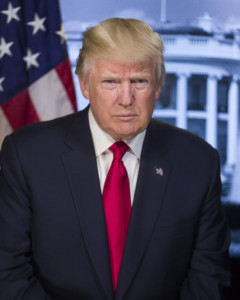WASHINGTON, DC ― President Trump’s new executive order is essentially a “Muslim Ban 2.0” in that it reiterates key components of its prior ban on immigrants from predominantly Muslim countries from entering the United States, Asian Americans Advancing Justice said in a statement.
The new order, issued less than a month after the U.S. Court of Appeals for the Ninth Circuit halted the original ban based on a preliminary finding that it violates the Constitution, continues to target immigrants and visitors from Muslim majority countries. While Iraq has been dropped from the list, the other targeted countries remain: Yemen, Libya, Somalia, Iran, Syria, and Sudan. It also continues to suspend the refugee program, which has provided humanitarian relief to large numbers of people fleeing political strife in the banned Muslim countries and elsewhere.

“The new ban makes minor changes in an attempt to get around the existing court rulings. It continues the administration’s effort to implement xenophobic policies, shut down Muslim immigration, and racially profile Muslim refugees as threats,” said John C. Yang, president and executive director of Advancing Justice | AAJC.
In addition to eliminating Iraq from the ban, the new ban states that it does not apply to green card holders; eliminates the preference for religious minorities seeking refugee status, which was widely understood to favor Christian refugees based on the President’s own statements; and eliminates the indefinite ban on Syrian refugees. It also provides for phased implementation, so as not to affect people who are already granted visas when the ban goes into effect on March 16th, but also allows time for inevitable legal challenges.
“The prior Muslim ban was an unmitigated disaster both in terms of moving our country away from our core Constitutional values of equality and inclusion based on hollow national security claims, as well depriving people of basic due process rights. This new ban is mostly a reiteration of the earlier attempt and is unconstitutional for the same reasons,” said Laboni Hoq, litigation director at Advancing Justice-LA.
Over 40 lawsuits were filed after the first ban was instituted on January 27, 2017, which took effect immediately. Advancing Justice attorneys volunteered in multiple airports throughout the country. Advancing Justice negotiated the release of an elderly Iranian couple at San Francisco International airport, and was also an organizational plaintiff in one of the lawsuits.
“When the first Muslim ban came down, we were on the ground in airports across the country and we are ready again to fight this administration’s continued attempts to roll back Constitutional protections for immigrant communities,” said Elica Vafaie of Advancing Justice | Asian Law Caucus. “We are not going to sit idly by as this administration attempts to unilaterally roll back Constitutional protections for immigrant communities, who are valued members of our diverse society.”
“Through the leadership of a number of civil rights organizations, together with pro bono legal and nonlegal volunteers, we experienced one of the most spontaneous and organic calls to action that we have seen in modern times,” said Andy Kang of Advancing Justice | Chicago.
In an effort to combat “Muslim Ban 2.0”, Asian Americans Advancing Justice will also mount an education campaign to ensure travelers know their rights and how to use them. This effort includes our Know Your Rights resources page, which compiles up-to-date and trusted resources from partners and other civil rights organizations. Travelers who are concerned they may be targeted by the new ban should contact one of the following free legal hotlines prior to embarking on their flights to the U.S.







